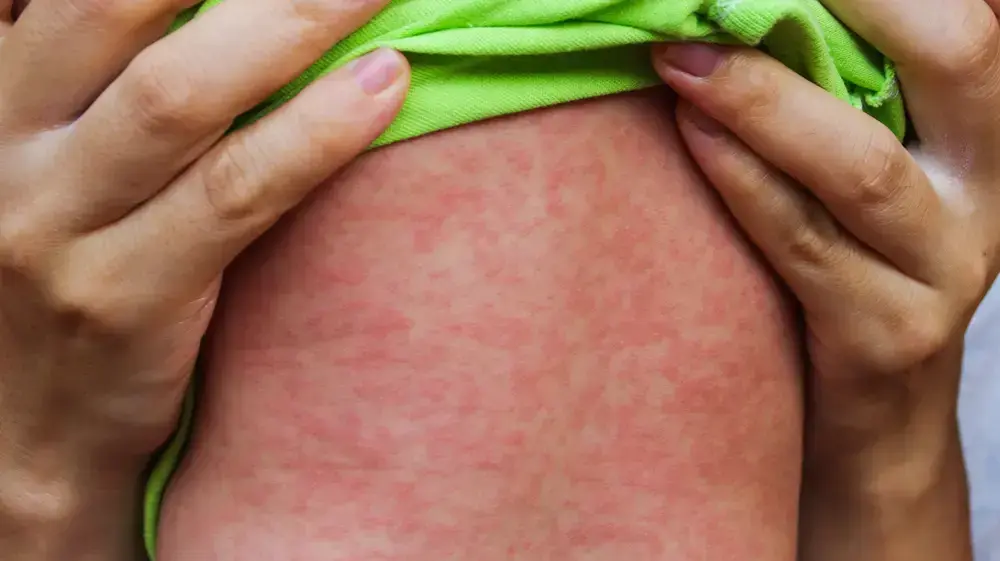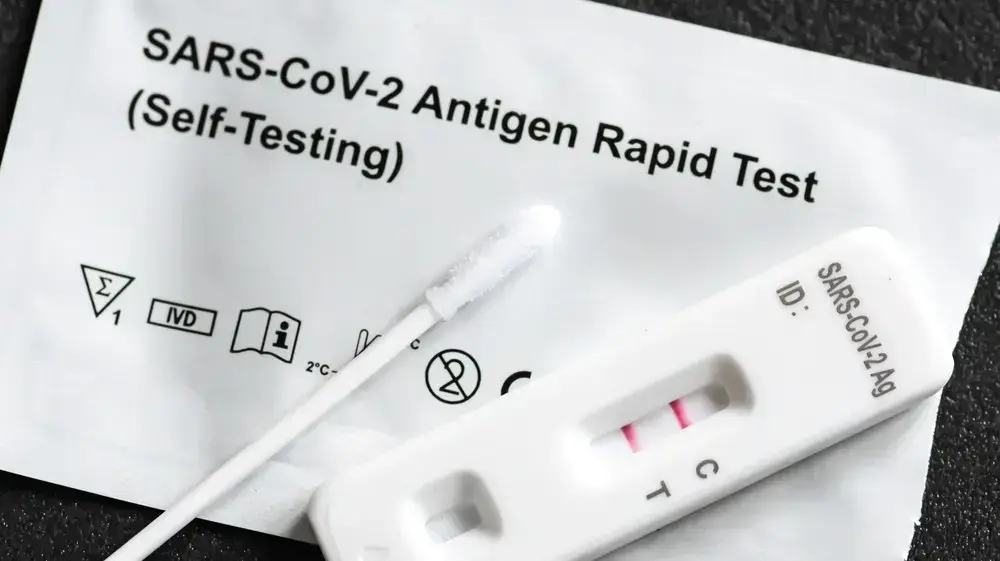- Click to share on Facebook (Opens in a new window)
- Click to share on Twitter (Opens in a new window)
- Click here to share on LinkedIn (Opens in a new window)
- Click to email a friend (Opens in a new window)
How do you get the coronavirus? 1:54
(CNN) - When the outbreak of the new coronavirus hit China in late December and January, the government went into crisis mode.
Very affected cities like Wuhan, where the outbreak began, entered into a total blockade. Millions of people worked from home or were quarantined for weeks. New hospitals were built in a matter of days to treat the large number of patients. People who broke the quarantine rules or lied about their travel history were arrested.
These measures were drastic, but they seem to be paying off, as the situation seems to be slowly stabilizing in mainland China and the rate of new cases decreases daily.
"We have seen the comprehensive measures that China has taken and ... we believe that this has had an impact to change the natural trajectory of the outbreak in China," said Dr. Maria Van Kerkhove of the World Health Organization (WHO) on Wednesday. .
Mainland China recorded 119 new cases of the virus at the end of Tuesday, with all but four in Hubei province, figures that are in line with the downward trend in China.
Instead, the Covid-19 crisis has spread abroad, with new alarming groups of the disease in the United States, the Middle East and Europe. The scenes that were once limited to China and East Asia (ubiquitous facial masks, hand sanitizers and rolls of toilet paper, disinfected trains and empty public spaces) are being seen globally as authorities around the world fight for contain the outbreak
U.S
As of Wednesday, 126 cases of coronavirus and 9 deaths have been reported in the country, with the majority of infections in the states of California and Washington.
Many cities, including San Francisco and Seattle, and even entire states like Washington, have declared a state of emergency. This allows local and state authorities greater access to emergency resources and financing in preparation for a larger outbreak.
Federal agencies are also working on an answer: the US military. He says military laboratories are working on a vaccine, while the US Food and Drug Administration. (FDA) has just authorized health workers to use a wider variety of respirators, giving them greater flexibility as mask supplies run out.
However, the government has also had problems. There are widespread concerns about accessibility to test kits, while the failed implementation of the Centers for Disease Control (CDC) tests and the strict criteria on who could be examined cause delays in the exams.
The United States has only been able to perform about 3,600 tests so far, a surprising number compared to countries such as South Korea and Europe, where thousands of tests are performed daily.
The FDA commissioner initially noted that the US I should be able to perform about 1 million tests by the end of this week, but later clarified that there was a difference "between the ability to take test kits to laboratories and the ability of laboratories to do tests."
There is also confusion about other federal policies, such as quarantines and travel restrictions. The Trump administration announced new rules in early February, but offered few details, leaving local officials struggling to solve it. San Antonio, Texas, has even filed a lawsuit against the federal government for a disagreement in the quarantine protocol.
Among citizens, anxiety about the virus seems to be increasing. Masks and hand sanitizers have been sold out in many places; A woman from California told CNN that she visited 15 stores for two days, only to find a single box of available masks.
Coronavirus: For this reason you should not wear masks 1:02Italy, Europe and the United Kingdom
The European outbreak was first imposed in Italy, but now it has spread throughout the continent. The European Union (EU) raised the level of risk from moderate to high, warning that each country needs to prepare for the outbreak.
In Italy, where 79 people have died, the cities and towns of the north have been totally or partially closed, putting in quarantine 100,000 people.
Schools are suspended, public spaces such as swimming pools or parks are closed, and mass events have been canceled or postponed to reduce the risk of contagion.
An Italian government working group is working 24 hours to manage confirmed cases, monitor health procedures at the national level and work with international agencies such as WHO and the European Center for Disease Prevention and Control.
In other parts of the EU, deaths related to the virus have been reported in France and Spain, which have almost 400 cases combined.
Travel restrictions and countries and airlines have been established from the USA. to Kenya, for example, they have suspended flights to Italy. However, EU borders remain open, and EU health ministers warned that border closure would be a "disproportionate and ineffective" measure.
EU member countries have come together for a broader coordinated response, with a working group that covers responses in the medical field, mobility, travel, and economic impact.
The United Kingdom also formed a “battle plan” against the virus and has implemented virus tests in 12 laboratories across the country. Almost 14,000 people have been evaluated throughout the United Kingdom so far.
They ask to cancel SXSW festival for fear of the coronavirus 1:19Asia-Pacific Region
In Asia, the focus is on South Korea, which has the largest number of patients outside of mainland China. More than half of its 5,612 cases are linked to a branch of the Shincheonji religious group in the south of the country.
In response, South Korean President Moon Jae-in said on Tuesday that the country "has entered a war against" the coronavirus. The government has proposed an additional budget of approximately US $ 9.8 billion in response and recovery, which will be submitted for approval on Thursday.
The authorities have aggressively implemented the tests throughout the country, including establishing test stations where people can get tested in minutes, all without having to leave their cars.
They have also employed creative technologies in this "war," such as a GPS system that triggers an alarm when patients violate the quarantine at home.
In South Korea and other places in Asia, such as Singapore and Hong Kong, massive information campaigns have been conducted to educate the public about basic but crucial preventive measures, such as washing your hands, staying away from crowds and not touching your face.
Millions continue to work from home in Asia, with government departments and private companies implementing flexible or remote work agreements for better social distancing.
Public events and meetings have been canceled for the same reason: in Japan, the Rugby Sevens tournament was canceled for fear of the coronavirus.
Governments in these places have also had to deal with unexpected problems such as panic purchases, which caused toilet paper rolls and facial masks to run out in Hong Kong supermarkets.
The same problem is now being seen in Australia, which reported additional cases this week after almost a month without new cases: images of cities like Sydney and Brisbane show empty aisles of supermarkets and crowds competing for products.
In response, governments have urged people not to panic and buy for this reason, and said there was no threat to the supply. Supermarkets have also imposed limits on how much people can buy items such as toilet paper.
Vaccine against the coronavirus: a race against time 2:33Iran and the Middle East
Iran is at the heart of the Middle East outbreak; The country has reported more than 2,300 cases and 77 deaths. Almost 8% of legislators have tested positive for the virus.
Iran mobilized a national team of 300,000 health workers and specialists, its vice minister of health said Tuesday. WHO international experts also arrived in Tehran this week to work with health authorities and coordinate the response.
Those trying to leave the city of Qom, zone zero of the outbreak in Iran, will be quarantined if they have a fever and show symptoms of coronavirus, the government announced Wednesday.
Iran has also taken unusual measures, such as temporarily releasing more than 54,000 prisoners in an attempt to prevent the spread of the virus.
In the past two weeks alone, the virus has spread to a dozen other Middle Eastern countries. Several have closed borders with Iran or imposed travel restrictions, while others, including Qatar, Turkey and Kuwait have ordered the evacuation of their citizens from Iran.
Iraq closed all schools, cinemas, cafes and other public spaces for two weeks, and prohibited its citizens from traveling to countries affected by the virus such as Iran, Kuwait and Bahrain.
Do the masks help contain the coronavirus? 1:53Africa and Latin America
Although there is not a large outbreak of the virus in Africa or Latin America, several countries in those regions reported their first cases last week, which raises concerns about the possibility of the virus continuing to spread.
In Africa, cases have been confirmed in Egypt, Algeria, Nigeria, Senegal and Tunisia.
After confirming the country's first case, the Nigerian authorities expressed confidence in their ability to handle the outbreak, saying that the Ebola outbreak in West Africa had prepared the continent well.
However, WHO warned that an outbreak could affect Africa much stronger than China. There are obstacles that could complicate hygiene practices and virus containment; Only 42% of Nigerians have access to soap and water in their facilities, while 25% do not have access to water.
WHO experts have been sent to particularly vulnerable countries, and the agency is providing test equipment, reagents for chemical analysis and staff training to African laboratories.
Meanwhile, in Latin America and the Caribbean, cases have been confirmed in Mexico, Argentina, Brazil, Chile, Ecuador and the Dominican Republic.
Similar to the US states and cities, countries such as Mexico, Guatemala and Panama have declared states of emergency or high-level alerts in preparation for a major outbreak.
Even countries without confirmed cases do not take risks: Panama has allocated US $ 2.5 million for a response against the virus, launched a public information campaign and conducts training sessions for health workers.
coronavirus









